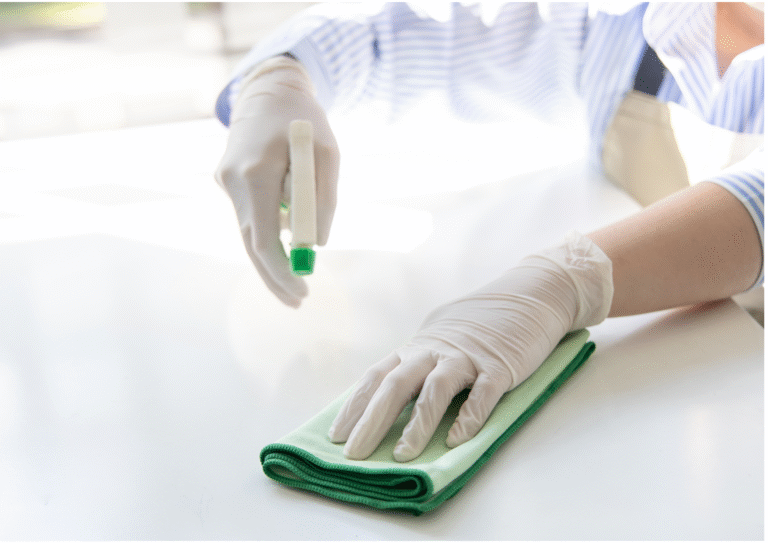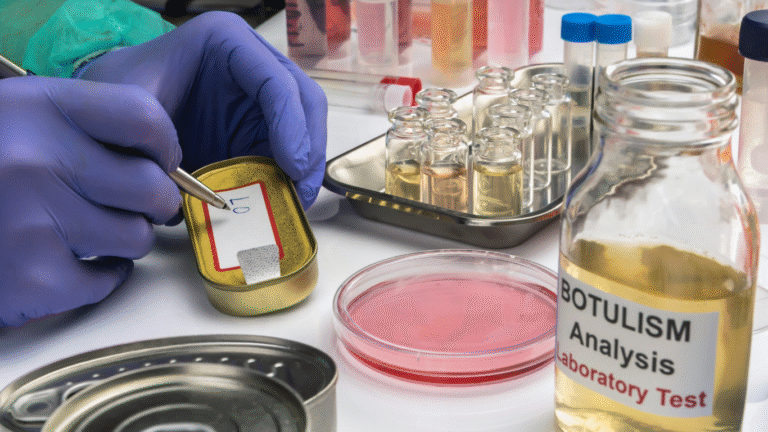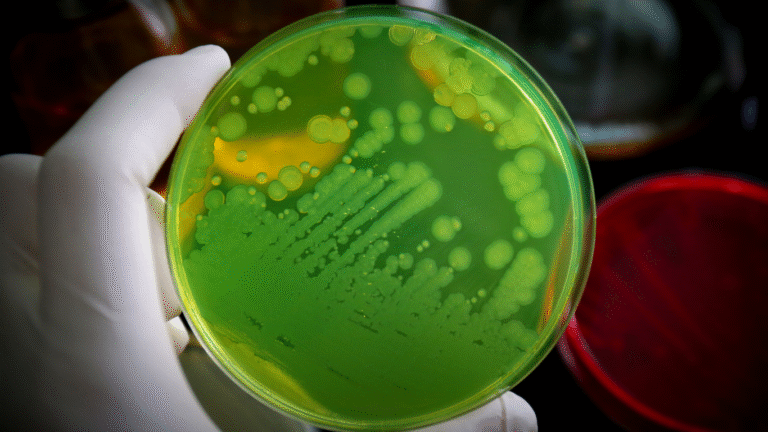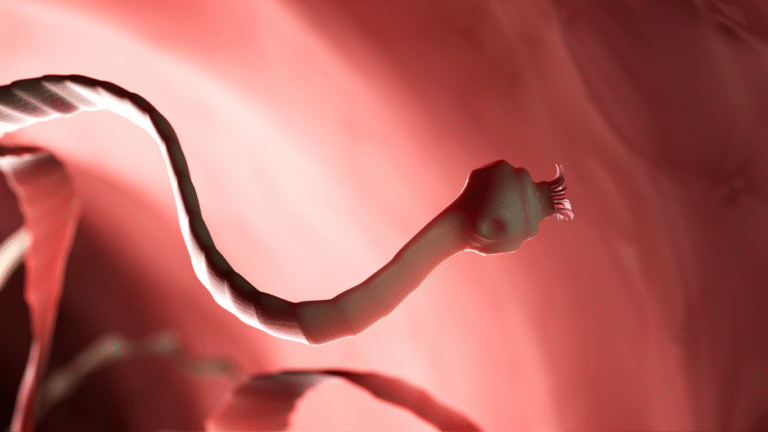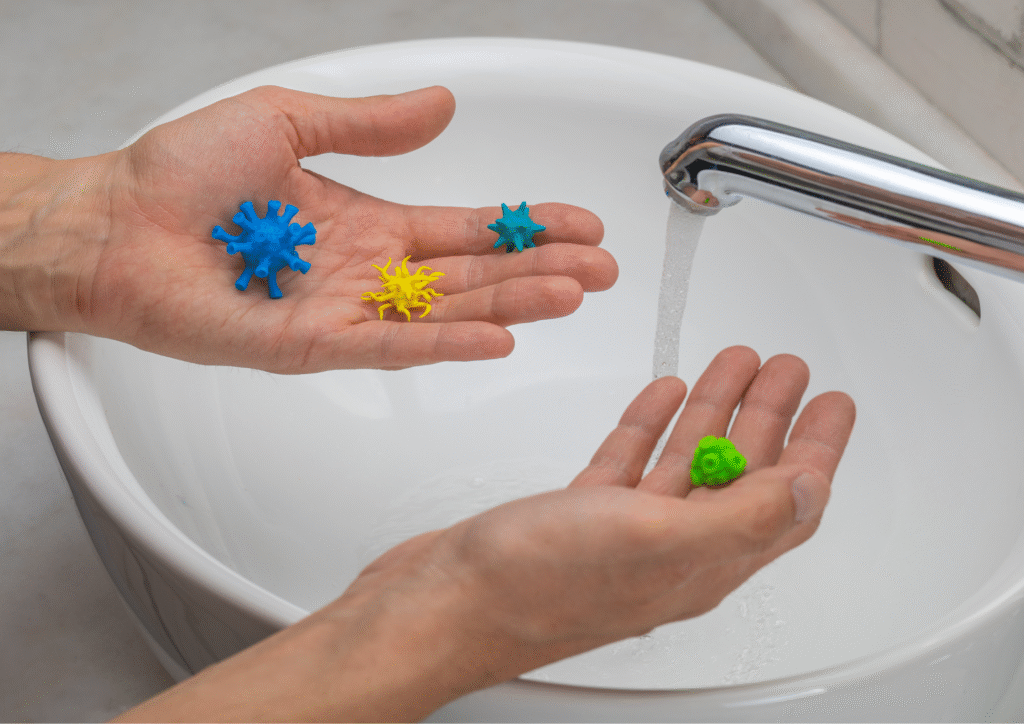
Do you sanitize every surface you touch? Do you wash your hands like a surgeon and keep antibacterial wipes everywhere? You are not alone. Your desire is to protect your family and yourself from sickness. But what if all of this cleaning is actually making you more vulnerable instead of safer?
It may seem strange, but it is possible to be too clean. The reason lies in a surprising idea called the Hygiene Hypothesis. It suggests that our quest for a sterile environment might be having an unexpected effect on our health.
The Dirty Truth: Why Overcleaning May Harm Your Health
The Hygiene Hypothesis makes a simple and powerful claim: Early exposure to germs, bacteria, and even dirt helps to train our immune systems. This process teaches our bodies to tell the difference between what is harmful and what is not.
Without this early “training,” our immune systems may grow bored. When this happens, they can start to attack harmless things. This includes things like pollen, peanuts, or even our own cells. This theory helps explain the increase in allergies, asthma, and autoimmune diseases, especially in modern, industrialized countries that favor very clean habits.
A Fair Look at Our Obsession With Cleanliness
Of course, this does not mean we should stop being clean. Handwashing is one of the best ways to prevent the spread of disease. Sanitizing surfaces during flu season or a pandemic is also very good advice.
From a public health standpoint, we have won many battles against disease thanks to soap, clean water, and germ theory. So, it is natural that some people find the idea of cleaning being harmful hard to believe. As Dr. Sally Bloomfield, an honorary professor at the London School of Hygiene & Tropical Medicine, states, “Hygiene saves lives. That is not up for debate.”
She is right. But the Hygiene Hypothesis does not say “be dirty.” Instead, it suggests we should be exposed to germs in a smart way, especially in early life.
Overcleaning and the Rise of Allergies
Let’s look at some of the evidence. A 2002 study in the New England Journal of Medicine found that children who grew up with older siblings, pets, or on farms had much lower rates of hay fever and eczema.
Why? The study found that more exposure to microbes led to a better regulated immune system. In contrast, very clean homes seem to “under-challenge” the immune system in early life. As a result, the immune system starts to overreact to harmless things. This could be one reason for the increase in peanut allergies.
The Immune System: A Teenager Without Supervision
You can think of your immune system like a teenager. If you give it structure and experience early on, it learns boundaries. However, if you do not give it enough to do, it can act out in random ways. Sometimes, it even turns on itself.
This is the Hygiene Hypothesis in a nutshell.
Modern life also makes things tricky. For instance, we have fewer infections, more antibiotics, and more sterile homes. In addition, more babies are born by C-section, which avoids early exposure to their mother’s microbes. All of these factors result in an immune system that does not get to “practice” on real threats. Consequently, it starts to overreact and create problems where there are none.
But… Isn’t Cleanliness a Sign of Goodness?
There is also a social and psychological side to cleanliness. No one wants to be called dirty. A clean home and clean kids have become a sign of good parenting, success, and even virtue. The “mom who lets her kid eat dirt” is still quietly judged at the playground.
Because of this, the fear of being unclean is both an emotional and medical issue. Marketers know this well. How many commercials do you see that say, “Germs are the enemy. Lysol is your weapon”? We are constantly told that safety means being sterile. The problem with this idea is that it ignores the nuance of our immune health.
So, What Should You Actually Do?
You do not have to roll your toddler in compost or stop showering to build up immunity. Instead, you can try some of these simple, science-backed strategies:
- Let kids play outside. Dirt is not the enemy. It is a form of natural exposure therapy.
- Avoid using antibiotics unless they are absolutely necessary.
- Introduce different foods early in life to help the immune system adapt.
- Get a pet if you can. They are adorable machines for sharing microbes.
- Use mild cleansers. You do not need to use strong chemicals to clean your home every day.
The goal is to have a variety of microbes, not to kill them all.
A Moment for People with Anxiety
Let’s be honest. Some of us feel a strong need to clean. Anxiety, OCD, or a germ-conscious upbringing can make the idea of cleaning less often feel scary.
This article is not telling you to get rid of your Clorox wipes. Instead, it is suggesting that you might not need to sanitize your TV remote every day, unless someone has licked it.
The Dirt on Being Too Clean
We have come full circle. Modern medicine, which came from a focus on cleanliness, has given us longer lives and less disease. But extreme cleanliness, especially in our early years, may come at a cost. The Hygiene Hypothesis challenges our ideas about cleaning. It encourages us to find a healthy balance. We should not abandon hygiene, but we must respect the immune system’s need for training.
So, the next time your toddler drops a cracker on the floor, you do not need to panic. The five-second rule might not be the end of the world. After all, if dirt is really the enemy, at least it does not cost $5.99 a bottle.
Credible Sources
- Strachan, D.P. (1989). Hay fever, hygiene, and household size. British Medical Journal.
- NEJM (2002). Exposure to endotoxin and the development of asthma.
- Harvard Health Publishing. Is the hygiene hypothesis real?

